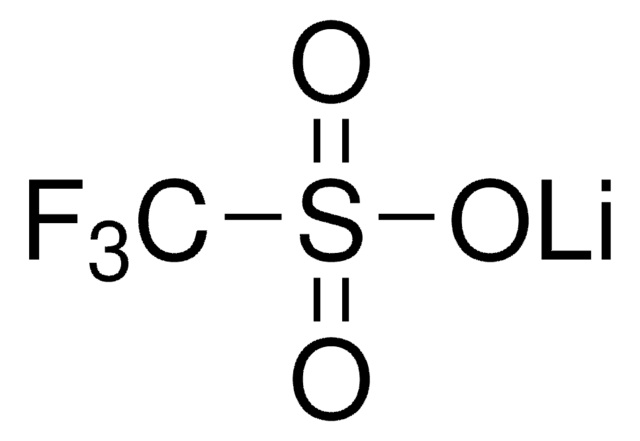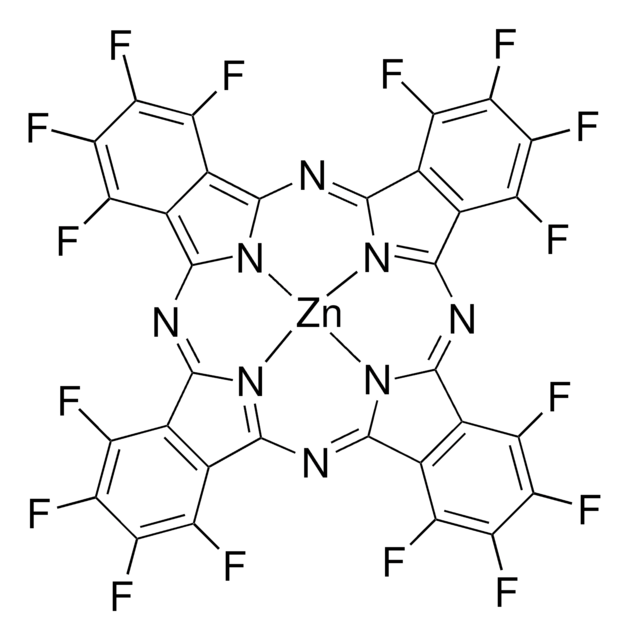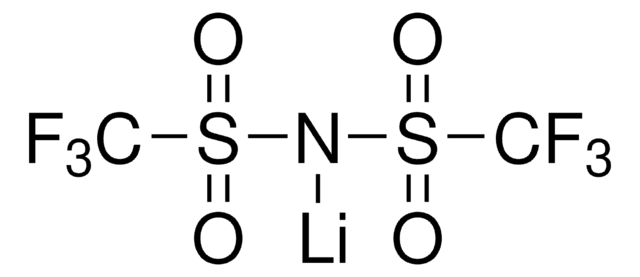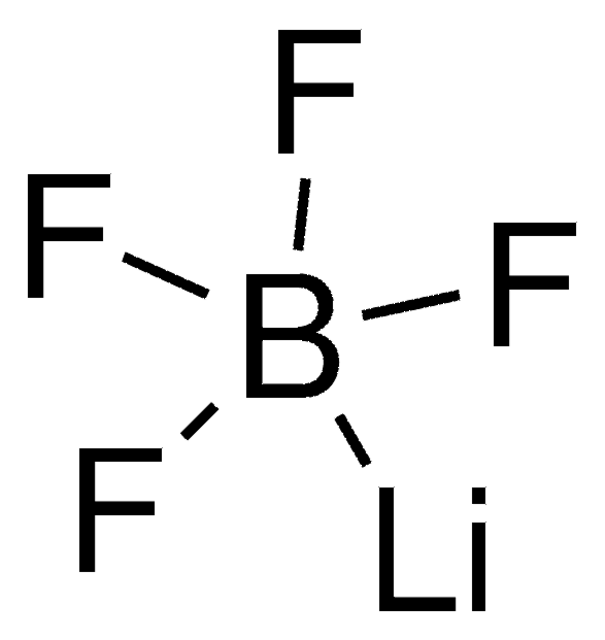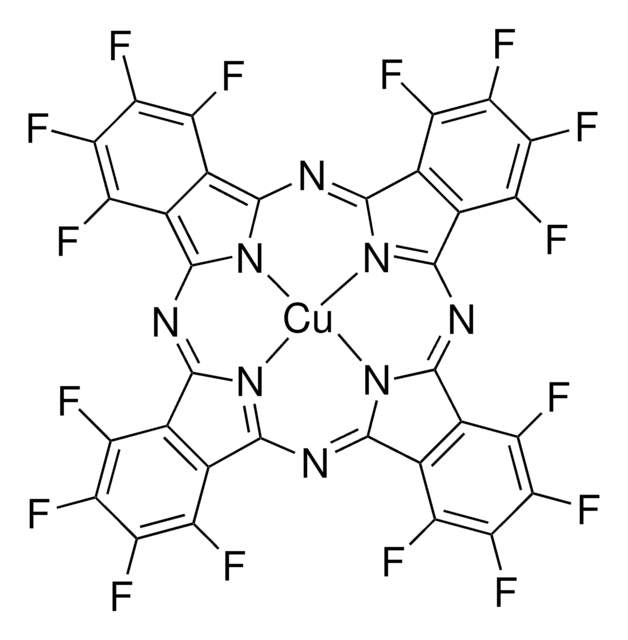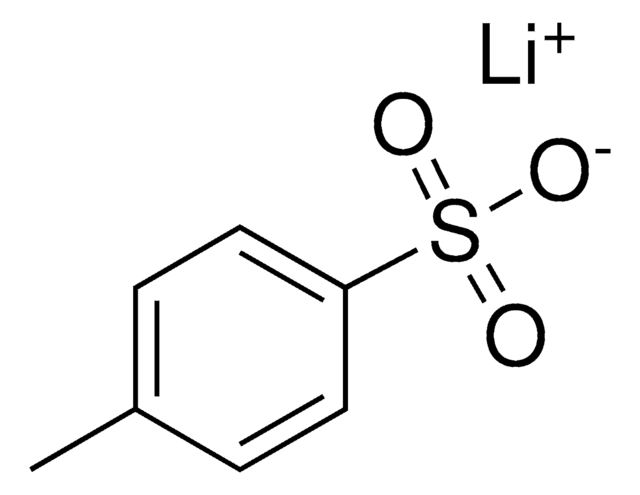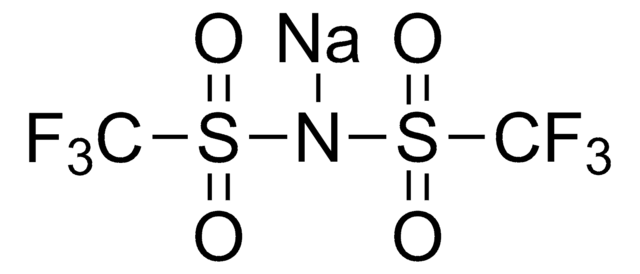481548
Lithium trifluoromethanesulfonate
99.995% trace metals basis
Synonym(s):
LiTf, Lithium triflate, Trifluoromethanesulfonic acid lithium salt
About This Item
Recommended Products
Quality Level
assay
99.995% trace metals basis
form
powder
greener alternative product characteristics
Design for Energy Efficiency
Learn more about the Principles of Green Chemistry.
impurities
≤60 ppm Trace Metal Analysis
mp
>300 °C (lit.)
application(s)
battery manufacturing
greener alternative category
SMILES string
[Li+].[O-]S(=O)(=O)C(F)(F)F
InChI
1S/CHF3O3S.Li/c2-1(3,4)8(5,6)7;/h(H,5,6,7);/q;+1/p-1
InChI key
MCVFFRWZNYZUIJ-UHFFFAOYSA-M
Looking for similar products? Visit Product Comparison Guide
Related Categories
General description
Application
- a polymeric layer for light-emitting electrochemical cells
- an electrolyte for lithium-ion batteries
- a recyclable catalyst for acetylation of alcohols and diacetylation of aldehydes
- a separator for supercapacitors
related product
signalword
Warning
hcodes
Hazard Classifications
Eye Irrit. 2 - Skin Irrit. 2 - STOT SE 3
target_organs
Respiratory system
Storage Class
11 - Combustible Solids
wgk_germany
WGK 3
flash_point_f
Not applicable
flash_point_c
Not applicable
ppe
dust mask type N95 (US), Eyeshields, Gloves
Certificates of Analysis (COA)
Search for Certificates of Analysis (COA) by entering the products Lot/Batch Number. Lot and Batch Numbers can be found on a product’s label following the words ‘Lot’ or ‘Batch’.
Already Own This Product?
Find documentation for the products that you have recently purchased in the Document Library.
Customers Also Viewed
Articles
Dr. Sun reviews the recent advances in solid-state rechargeable batteries and cover the fundamentals of solid electrolytes in solid-state batteries, the theory of ion conduction, and the structures and electrochemical processes of solid-state Li batteries.
Discover more about advancements being made to improve energy density of lithium ion battery materials.
Lithium-ion batteries (LIBs) have been widely adopted as the most promising portable energy source in electronic devices because of their high working voltage, high energy density, and good cyclic performance.
Li-ion batteries are currently the focus of numerous research efforts with applications designed to reduce carbon-based emissions and improve energy storage capabilities.
Our team of scientists has experience in all areas of research including Life Science, Material Science, Chemical Synthesis, Chromatography, Analytical and many others.
Contact Technical Service

